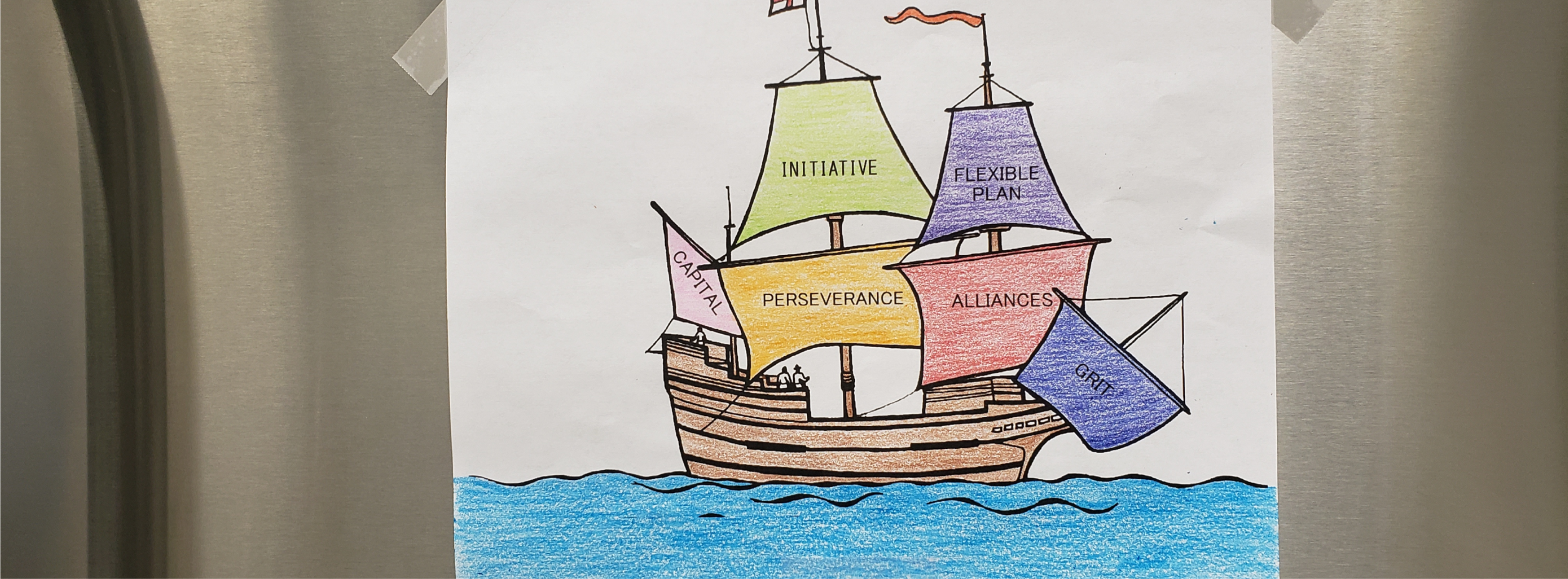
|

|

|

|

The “Pilgrims” of
Today
(Note: companies that
could be impacted by the content of this article are listed at the base of the
story [desktop version]. This article uses third-party references to provide a
bullish, bearish, and balanced point of view; sources are listed after the
Balanced section.)
This week, across the U.S., families and friends, young and old, will gather to celebrate the “most American” of holidays, Thanksgiving. The gatherings will most surely include traditional foods of the holiday while families enjoy their own tradition of sharing and gratitude. Thoughts may also drift to almost 400 years ago when in 1621 a determined group of 102 Pilgrims persevered to achieve a mission they believed in – an accomplishment that has had a positive impact for centuries. They met challenges from the very beginning during their two-month-long voyage on the Mayflower, and they struggled as the first Winter took the lives of half the population of settlers. These resolute individuals share many of the same characteristics as today’s newer business owners who are making sacrifices in their own lives, for a better tomorrow for themselves and their descendants.
Dictionary.com has four definitions for the word “entrepreneur,” the first reads: “a person who organizes and manages any enterprise, especially a business, usually with considerable initiative and risk.” It’s not a stretch to call the original settlers of Plymouth Massachusetts entrepreneurs. Their grit, ingenuity, initiative, and even willingness to learn and rely on others more experienced in their environment, was certainly entrepreneurial.
The Mayflower colonists did not go by the moniker “Pilgrims,” that tag came 200 years after their landing at Plymouth Rock. Instead they referred to themselves as the “Saints” to indicate their purity and feelings of being special or chosen. This feeling must have been a strong driver as they risked so much in a way that is extreme by any standard in modern America.
Today’s Pilgrims
The risk-takers today, at least those looking to sacrifice more than others for the dream of a better tomorrow, whether for themselves and their families, or for the world at large, are the business entrepreneurs. Especially in fields that are “uncharted territory.” Some examples are companies relying on developing technology, scientific breakthroughs, or mineral exploration. As with most “firsts” there are always unknowns, long lead times before any profit, and a shortage of capital. These are among reasons building a business today, particularly in a groundbreaking field with unproven outcome, is a path taken by very few. Those that do, and then survive and thrive, have embraced being nimble, building alliances, persistence, belief in themselves, and asking for help when needed.
“All great and honorable actions are accompanied with great difficulties, and both must be enterprised and overcome with answerable courage.” –
William Bradford, Second Governor, Plymouth Colony
Flexibility
The Pilgrims initially went to Holland where they expected to be welcomed by people of different religions. Their main reason for having left England was to worship without constraints. The Pilgrims made their home at first in Holland, but the more secular life they found there was not going to lead to a future that matched their vision. They wanted to build their own colony where they would attract others who believed as they did – even if it meant starting with close to nothing. As entrepreneurs, they didn’t accept an undesirable outcome; they pivoted, changed their plans and redirected their effort, deciding to establish themselves and their future near Virginia’s Hudson River. While traveling, storms pushed them into Massachusetts where they decided to rethink their plan once again. They then revised their plan and decided to find an area close to where they landed that would be suitable for farming.
To begin the two-month trip across the Atlantic, the Pilgrims borrowed money that, at the time, was an astronomical amount. The loan from, English capitalists looking to profit off the venture, was for 1700 pounds. At the time, the average Englishman earned a tenth of a pound per day. As colonists they first worked collectively to pay back this loan. They later divided acreage to work individually at farming their own land.
Alliances
After the first brutal Winter, the Pilgrims, who raised money in a business arrangement to finance their journey, again opened themselves up to being helped. This time by native Americans. They learned how to best plant corn, where to fish, how to trap beaver and other furs. This helped lead the pilgrims to an abundance just one year later and a profit their second year. Their debt was fully paid off in 23 years.
There are now over 10 million living Americans who are descendants of the Mayflower passengers. The undeniable traits of the entrepreneurs we now call Pilgrims have impacted the world. Entrepreneurs of today share the same traits and skills of those that came before; intention toward a dream, plan, persevere, adjust, negotiate, orchestrate help, and implement. The impact of entrepreneurs continues to shape the world and continue to have a positive impact on the future with their efforts.
Giving Thanks
Ideas have the ability to change the world. Those ideas that improve lives and positively impact the world are on the list of things we can be thankful for.
https://www.history.com/topics/colonial-america/mayflowerhttps://www.reference.com/history/did-pilgrims-holland-873ed8cabf62ca05
https://www.reference.com/history/did-pilgrims-holland-873ed8cabf62ca05
https://www.history.com/topics/colonial-america/mayflower
Author: Paul S. Hoffman